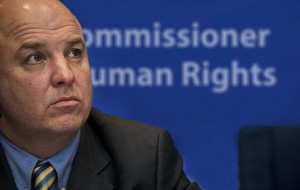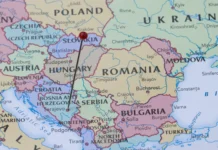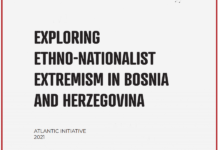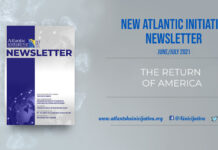Source: Reuters UK | By: Marton Dunai
◊ A top human rights diplomat said on Friday he had warned Hungary’s government to avoid “dangerous” rhetoric, after international criticism of its treatment of the media and civil society groups.
Nils Muiznieks, Commissioner for Human Rights at the Council of Europe, who has just wrapped up a fact-finding mission to Hungary, told Reuters in an interview that centre-right Prime Minister Viktor Orban’s government was not authoritarian but should pay more attention to minority views. Orban has ruffled feathers since coming to power in 2010 with a two-thirds majority, reshaping Hungary dramatically with little regard to criticism from home or abroad.
Since renewing his strong mandate for another four years in April elections, he and his Fidesz party have put pressure on non-governmental organisations they accuse of bias. Some groups have had their offices raided.
Fidesz passed and then tightened a new advertising tax that media companies say will sap profits and undermine their operations, potentially leading to more control by government-friendly business groups.
“I think to cast doubt on the motivations of public interest NGOs or media outlets is quite a dangerous thing, and something that happens in an authoritarian context, and not a democratic context,” Muiznieks told Reuters.
“I urged the authorities to be very careful in their rhetoric on this.”
Muiznieks, an American of Latvian origin who once served in Latvia’s government, said concerns about Hungary’s media included the spread of self-censorship and a concentration of ownership.
Public service media has become an obedient outlet for the government, a Reuters inquiry has found.
The government spokeswoman’s office did not reply to an email seeking detailed comments on Muiznieks’ remarks.
ADS FOR FRIENDS
“In 2011 there were a lot of concerns occasioned by the media package,” Muiznieks said. “Some of the key concerns have been addressed. But a number still remain.”
He said there was concern that public bodies spent most of their advertising budgets at friendly media outlets instead of dividing the funds on a market share basis.
The new advertising tax should be reviewed because the fear was that it targeted a single media company, which, if true, would threaten media pluralism, he added.
“Any measures that could impinge upon the media’s ability to sustain themselves through advertising revenue should be looked at very closely – especially if it affects one media outlet disproportionately. Then questions arise as to the motivation.”
German media giant Bertelsmann’s Hungarian unit RTL has said it is the main target of the new tax.
He cautioned against a concentration of media ownership, especially if it benefited business circles close to Fidesz.
“If you have media concentration in the hands of a couple of business interests, especially if those business interests are close to the government, then it affects media pluralism in general,” Muiznieks said.
“Ideally there is diverse ownership, it is transparent, and you have a variety of editorial policies. Let a hundred flowers bloom.
“I think the danger is that (Hungary) will have fewer flowers blooming because of tax policy, legislation, and the political environment. I think that’s a risk.”
◊ Original article: http://reut.rs/1jvP61L
July 4, 2014








